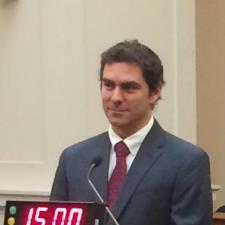
Jordan M. answered • 06/15/20
Experienced Law Clerk Available to Tutor
Interesting question from a legal perspective. For purposes of disclosures and discovery, the officer's knowledge is attributable to the prosecution. Knowledge that a search was performed in violation of the Fourth Amendment is not, in and of itself, exculpatory evidence because it does not tend to establish that the defendant did not commit the offense, just that there is a flaw in the prosecution. Accordingly, neither the officer nor the prosecution need come forward and disclose the search issue to the defendant. Rather, as the above response indicates, it is defense counsel's job to develop a challenge to the search. But, if defense counsel does explore the issue, it will be important for the officer to tell the truth. In addition to the perjury issue, the officer will place the prosecution in a catch-22 if she lies. Under Giglio v United States, the prosecution must disclose impeachment evidence to the defense. So, the moment the officer lies about the search, the prosecutor would be bound to disclose the information about the search should the prosecutor intend to call the officer at trial (which seems inevitable if the officer recovered the contraband) And, even if the officer never informed the prosecutor, because the information is attributable to the prosecutor automatically, if the prosecutor did not disclose the information and the defense found out about it after trial, any conviction would be subject to a potentially meritorious post-conviction challenge based on the discovery violation. Bottom line, this is all to say that the officer ought to advise the prosecutor about the investigatory error and let the prosecutor adjust strategy based on this important information.
NOTE: The above is not intended as legal advice but is offered in response to an apparent hypothetical question put forth for discussion.





